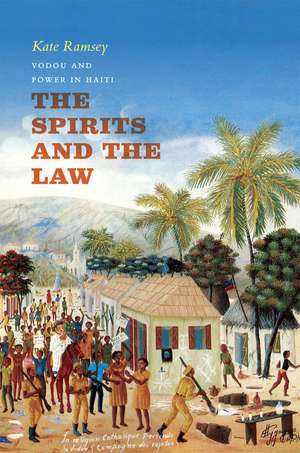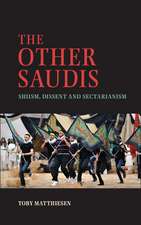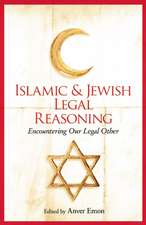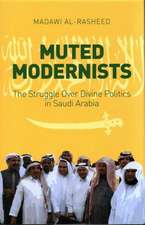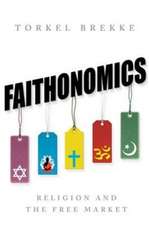The Spirits and the Law: Vodou and Power in Haiti
Autor Kate Ramseyen Limba Engleză Paperback – 7 ian 2016
To find out, Kate Ramsey begins with the Haitian Revolution and its aftermath. Fearful of an independent black nation inspiring similar revolts, the United States, France, and the rest of Europe ostracized Haiti. Successive Haitian governments, seeking to counter the image of Haiti as primitive as well as contain popular organization and leadership, outlawed “spells” and, later, “superstitious practices.” While not often strictly enforced, these laws were at times the basis for attacks on Vodou by the Haitian state, the Catholic Church, and occupying U.S. forces. Beyond such offensives, Ramsey argues that in prohibiting practices considered essential for maintaining relations with the spirits, anti-Vodou laws reinforced the political marginalization, social stigmatization, and economic exploitation of the Haitian majority. At the same time, she examines the ways communities across Haiti evaded, subverted, redirected, and shaped enforcement of the laws. Analyzing the long genealogy of anti-Vodou rhetoric, Ramsey thoroughly dissects claims that the religion has impeded Haiti’s development.
Preț: 247.57 lei
Nou
Puncte Express: 371
Preț estimativ în valută:
47.39€ • 48.74$ • 39.32£
47.39€ • 48.74$ • 39.32£
Carte tipărită la comandă
Livrare economică 19 februarie-05 martie
Preluare comenzi: 021 569.72.76
Specificații
ISBN-13: 9780226703800
ISBN-10: 0226703800
Pagini: 448
Ilustrații: 20 halftones
Dimensiuni: 152 x 229 x 28 mm
Greutate: 0.65 kg
Editura: University of Chicago Press
Colecția University of Chicago Press
ISBN-10: 0226703800
Pagini: 448
Ilustrații: 20 halftones
Dimensiuni: 152 x 229 x 28 mm
Greutate: 0.65 kg
Editura: University of Chicago Press
Colecția University of Chicago Press
Notă biografică
Kate Ramsey is associate professor in the Department of History at the University of Miami.
Cuprins
List of Illustrations
Acknowledgments
Note on the Spelling and Use of Terms in Kreyòl
Introduction
1. Crimes of Ritual Assembly and Assemblage in Colonial and Revolutionary Saint-Domingue
2. Popular Spirituality and National Modernity in Nineteenth-Century Haiti
3. Penalizing Vodou and Promoting “Voodoo” in U.S.-Occupied Haiti, 1915–1934
4. Cultural Nationalist Policy and the Pursuit of “Superstition” in Post-Occupation Haiti
Epilogue
Notes
Bibliography
Index
Acknowledgments
Note on the Spelling and Use of Terms in Kreyòl
Introduction
1. Crimes of Ritual Assembly and Assemblage in Colonial and Revolutionary Saint-Domingue
2. Popular Spirituality and National Modernity in Nineteenth-Century Haiti
3. Penalizing Vodou and Promoting “Voodoo” in U.S.-Occupied Haiti, 1915–1934
4. Cultural Nationalist Policy and the Pursuit of “Superstition” in Post-Occupation Haiti
Epilogue
Notes
Bibliography
Index
Recenzii
“Kate Ramsey tells a fascinating story of antisuperstition legislation in Haiti….a tour de force in the historical anthropology of Haitian vodou and the paradoxes of modernity that it so vividly manifests.”
“Ramsey’s rich and multilayered book tells a new history of Haiti that reorients how we think politically. Both hard-hitting and revelatory, it teaches us how to understand the law writ large, its plural histories, its effects on everyday life, its ability to absorb and transform and be transformed, to command the public sphere. . . . The continued deformation of Haitian culture, the maligning of vodou—born out of the legality that might seem to deny it—is always political. In calling our attention to the relationship between dead bodies, haunting spirits, and legal authority, Ramsey guarantees a political history that is rigorous and visible—a necessary wakeup call, it is to be hoped, to a mythologized Haiti of zombies, sorcery, and witchdoctors that screens the ongoing economic greed, political guile, and sheer weight of military force.”
“A sophisticated investigation of how Vodou has been treated by the ruling powers of the island since the era of French colonization.”
“The Spirits and the Law is a nuanced and thorough reading of a religious system that has been historically misunderstood, demonized, and criminalized. Ramsey effectively shows how Vodou’s treatment both officially and unofficially is part and parcel of a larger battle for power and self-determination from various agents that is waged locally and internationally. In her quest to reveal truths Ramsey leaves no stone unturned. What she cannot include in the main text she includes in the copious notes that could form another text in themselves. Anyone who seeks to truly “build Haiti [back] better” should make this text part of required reading, because no work will succeed in Haiti if those who go in to help refuse to understand that Haiti’s fraught and complex political history is inextricably woven with its spiritual history, a spiritual history that is not a “hindrance to progress,” as some would have us believe, but one to be respected and honored as a system that has supported and sustained Haiti against impossible odds.”
“Anthropological studies of Haitian popular religion are legion, but few of them deal with its history other than to claim for it an important role in the revolution of 1791 to 1804, which ended slavery and made Haiti the Americas’ second independent state. This impressive book provides an ethnologically informed history of Vodou with a particular focus on the politics of law. In four chapters of increasing length, Ramsey deals with the colonial and revolutionary periods, the nineteenth century, the U.S. occupation from 1915 to 1934, and the debates of the following decade surrounding an emergent cultural nationalism. Ramsey’s central problem is to explain why the state only intermittently enforced the laws that criminalized popular ritual practices from colonial times until the 1987 constitution….This richly detailed and sophisticated study, supported by 150 pages of notes, extends the work of [Laënnec] Hurbon and makes an original argument about the interaction of law, culture, and development.”
“Scholarly interest in the history of Haiti has resurged in recent years, largely focused on the Haitian Revolution. There is, of course, also a plethora of scholarship on Vodou in Haiti. Kate Ramsey’s The Spirits and the Law should not be overlooked as a run-of-the-mill addition to either body of work. Ramsey’s award-winning first book offers a valuable perspective on both the broader history of Haiti and the sociopolitical role of Vodou as she examines the creation and enforcement of laws that restricted ritual practices between the colonial period and the fall of the Duvalier regime.”
“Kate Ramsey’s ground-breaking study of the formative relationship between the popular practices of Vodou in Haiti and its legal repression in various periods re-shapes our understanding of the interplay between state power and cultural resistance, and between spiritual forces (lwa) and legislative codes (loi). In resituating how we might approach the relation of religion to modernity, she teaches us how the socalled ‘primitive’ beliefs and ‘atavistic’ practices actually emerge out of the ongoing negotiation of power with modernizing states, and in close relation to the legal codes that govern and regulate everyday life. Based on extensive and thorough research (both archival and interviews) encompassing more than a century and a half, this work has the potential to generate transformative understandings of Haitian history, and more widely of Caribbean critical legal studies, Afro-Caribbean religious history, post-emancipation political history and international relations, the philosophy of law, and the study of power and citizenship. Its lessons are also crucial to provoking more thoughtful discussions about the situation of Haiti today.”
“Kate Ramsey is a gifted, sophisticated, passionate, and objective student of Haitian life and history. In The Spirits and the Law she has left no stone unturned. She sees Vodou as a modern invention of the Haitian genius, and the book is a platform for analyzing all the big issues—from imperialism, to slavery, neocolonialism, and US exceptionalism expressed as racial paternalism—that have made Haiti what it has become. This is a very big book.”
“In The Spirits and the Law Kate Ramsey explores the links between the construction of Vodou as malicious magic or a progress-impeding force and the penalizing of superstitious practices by the Haitian state. This brilliantly argued and exhaustively researched study examines questions of prohibition and denial that are omitted by other works on Haitian popular religion. It is as much a formidable feat of scholarship as a much needed argument against seeing Vodou as responsible for Haiti’s underdevelopment.”
“In this compelling study of anti-superstition legislation in Haiti, Kate Ramsey culls a remarkable set of materials to bring to bear on the topic, ranging from colonial travel accounts, memoirs, State Department records, and U.N. sorcery reports. The richness of her account is a testament to indefatigable research, and she develops fresh insights into the related literature as well. This fascinating book adds much to our knowledge of modern Haiti as well as religion and cultural politics in Latin America and the Caribbean in general.”
“A tour de force of research and interpretation, this book offers a spellbinding history of the relationship between popular spiritual practice and the rule of law in Haiti. With fine-grained detail and theoretical sophistication, Kate Ramsey shows law to be a fickle spirit—a powerful but capricious force, having the capacity to lie dormant for long periods and then form suddenly into a dangerous weapon of church, state, and imperial oppression, while remaining susceptible to popular efforts to harness legal powers for beneficial ends. Can great scholarship work like medicinal magic? If, as Ramsey argues, popular religion is a vital resource sustaining Haiti’s people, then perhaps The Spirits and the Law can cure the toxic pathologies afflicting so much of the ill-informed commentary on Vodou’s role in Haitian life.”
